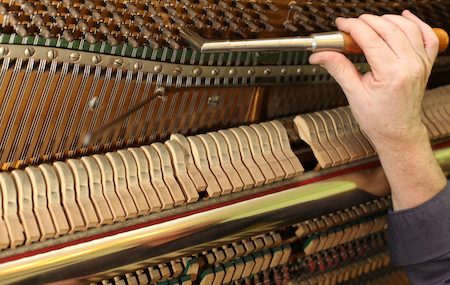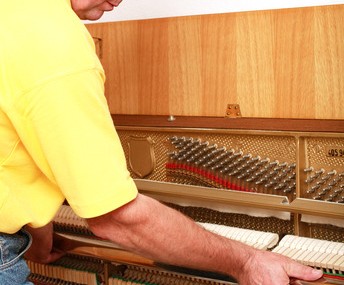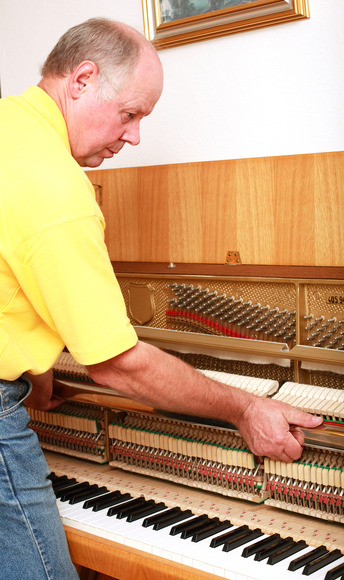Some things inside your home have more value over time. We often are enamored by television shows that find buried treasure in the attics and basements of loved ones.
Yet while a painting can be hidden away in a suitcase for decades and grow in value, a piano doesn’t hold those same characteristics. The definition of an antique is: a collectible object such as a piece of furniture or work of art that has a high value because of its considerable age. A painting may never change, especially if it’s kept apart from the elements around it. A piano can and will.
A piano isn’t a piece of furniture, though you may be proud to display it inside your home. Instead, a piano contains over 10,000 parts that make it come to life every time you sit down to play it. It’s made from wood, metal, felt, and other organic components that will degrade over time.
- Wood can become brittle
- Hammers can get hard
- Strings can become rusty and stretched
And that’s just the start.
Whether you play the piano or not, the surrounding area impacts the playability of a piano. Humidity can settle in. Rising and falling temperatures can cause damage. The simple act of standing without touching it can affect how well it holds up over time.
If you purchase an older piano on Craigslist, for example, you may buy a piano that has sat in a living room, unplayed for decades. Worse, it might have shuffled between a basement or garage to make room for other furniture. Then it was “cleaned up” to try and make money from it online.
Without proper restoration, a piano will no longer function after years of neglect.
When looking to acquire a piano, age matters. A lot.
If a piano hasn’t been tuned in years, it will lose its ability to stay tuned. No matter how much you work with the strings, they won’t return to their proper sound.
If the pins are in good shape, replacing the strings may be all that’s needed to hold the sound. If more extensive damage is in place, it may require complete restoration of the strings, soundboard, plate, and bridges to bring it back into balanced tension.
In that case, it may make more sense to invest in a new piano. Or if there is sentimental value attached, a complete restoration may be the way to go.






